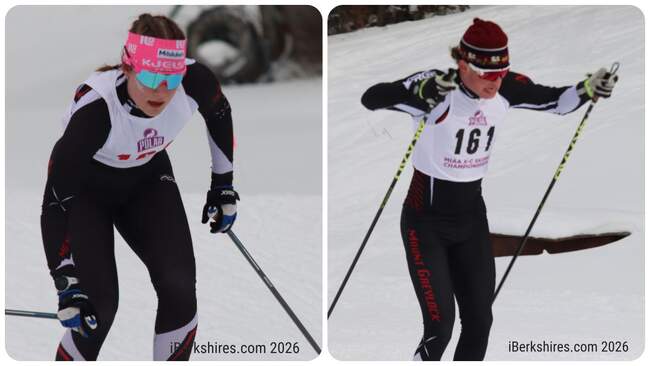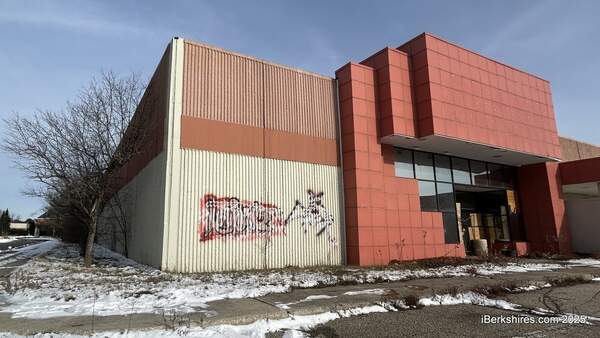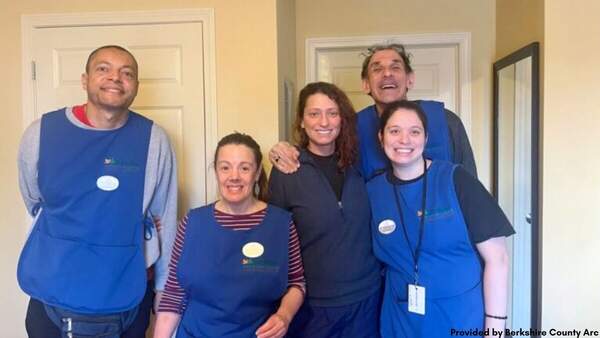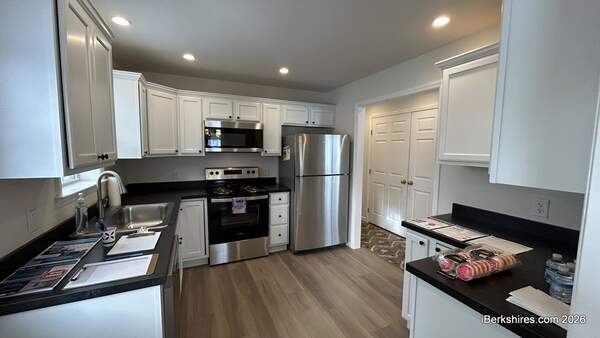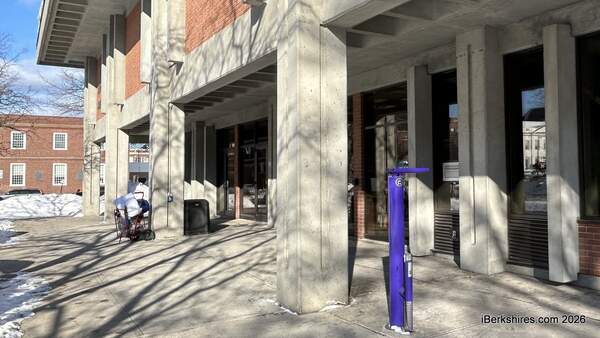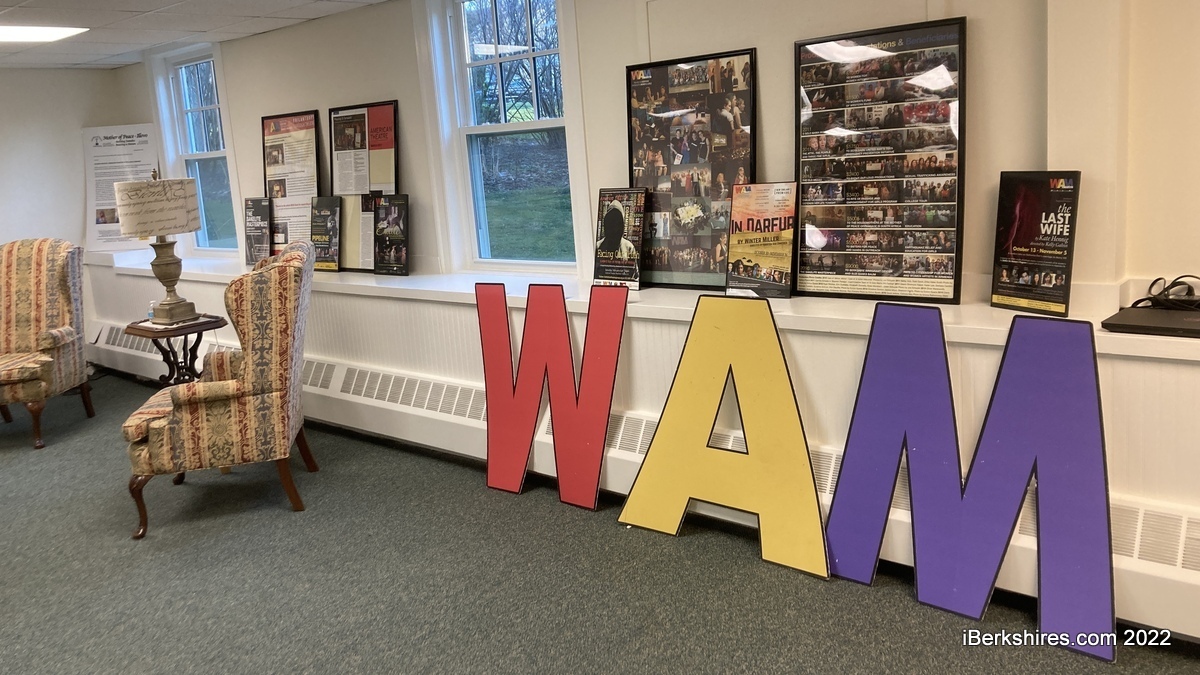
Berkshire Arts Organizations Launch Pay Equity Initiative
PITTSFIELD, Mass. — A number of Berkshire cultural organizations believe that properly compensating entry and mid-level employees is key in diversity, equity, and inclusion efforts.
Following an inclusive leadership training through Multicultural BRIDGE, six theater and arts organizations have launched a regional pay equity initiative that will release a set of recommendations and commitments in early 2023.
The aim is to address barriers that limit participation in the field while creating a diverse workforce of professionals who feel supported by their employers.
As of November, participants include WAM Theatre in Lenox, Berkshire Art Center in Stockbridge and Pittsfield, Community Access to the Arts in Great Barrington, Jacob's Pillow Dance Festival in Becket, and the Mahaiwe Performing Arts Center of Great Barrington, and Art Omi of Ghent, N.Y.
"An explicit goal here is that this is contagious," said Aron Goldman, the initiative's consultant.
"That this raises the bar and awareness in the entire nonprofit sector and in the entire economy for entry-level and mid-level employees, low-wage workers, that this creates a sort of positive peer pressure in the entire region about the problem and what is needed and how to address it."
The project took off in 2021 and is funded in part by the Berkshire Taconic Community Foundation. It is now surveying the public to better inform the process with a questionnaire that closes on Dec. 5.
Current and former cultural employees of the Berkshire/Columbia, N.Y., County regions are asked to answer questions on how their employment does or does not work. The results of this survey, a focus group series, and a compensation benchmarking analysis will fuel the project's recommendations.
While the effort is focused on compensation, observing low pay as a barrier to participation in the sector and contributing to inequities, it also recognizes that there are needed improvements in other areas such as benefits and working conditions.
Goldman said there is optimism in the fact that everybody wants this in the region, it is just a question of identifying the exact problem and planning some responses.
"We believe that doing right by entry and mid-level employees, first of all, is not that expensive," he explained.
"And second of all, it's more than paid for in terms of decreased turnover, increased productivity, a higher quality product from arts and culture organizations, and the kind of extraordinary and transformative art and performance that we come to expect in the Berkshires."
WAM, a small organization with less than 10 employees, has been working to compare its pay packages to the region's cost of living and other wages within the company.
The company has utilized a living wage calculator found through the leadership cohort and reports making "great strides" in the effort. For its salaries and pay, the goal is to keep all compensation within a 30 percent difference whether it is the top position or an entry-level position.
The theater has participated in two equity cohorts, the first being in 2018.
"For a few years, we have been thinking about how to reimagine our nonprofit institutions to be anti-racist, equitable, accessible," Producing Artistic Director Kristen van Ginhoven said.
"And in particular being a theater, our industry has relied in the past very much on overworking and underpaying people and everybody at WAM has been on the receiving end of that so it's been important to us to do what we can to ensure that people feel seen, heard and valued."
She feels that one of the most significant barriers to adopting better practices in the sector is educating the public on the behind-the-scenes work that goes into putting on productions.
"I think for a long time, the performing arts in general because we're excellent problem solvers and we're a front-facing sector, we have put things on that the audiences would not be able to tell were created at a cost, a human cost, an emotional cost," van Ginhoven said.
"And so one of the greatest barriers is actually educating the public around the need to spend more money in order to ensure a more humane experience for all of these members in the arts and also a more equitable experience in terms of removing barriers for participation."
As the COVID-19 pandemic subsides, she added that people have been more understanding and said it is a good time to re-educate the public about this issue.
CEO and founding Director of BRIDGE Gwendolyn VanSant reported seeing honest efforts to identify equity issues, a need for more diverse leadership and audience participation, and culturally relevant presentations and programs.
BRIDGE has served as a consulting partner and a coach to the Berkshire Taconic Community Arts Build Community for the last four years while it aims to develop accountability within local arts institutions.
Both van Ginhoven and Goldman pointed out that this is a larger, national effort.
"It does feel quite like we are aligned with many other movements that are happening and many other initiatives around pay equity that are happening nationally, which is worth people knowing. We are not alone in doing this work. Much of this is happening in many different areas across the country," she said.
"It also has been a really moving and heart-affirming experience to collaborate with so many other performing arts and arts and culture organizations. We work so much in silos that working on this project and meeting with each other pretty much weekly and having a consensus organizing model around doing this project has been very promising around the possibilities for collaboration in the future."


